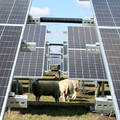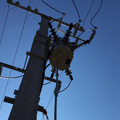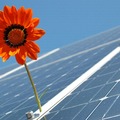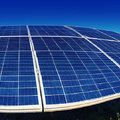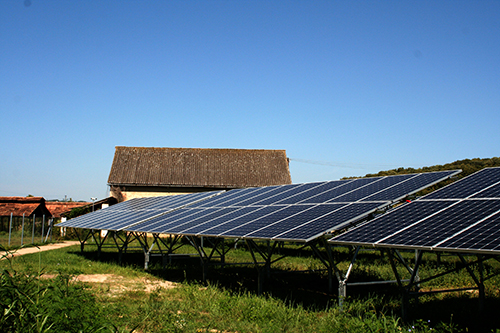
ASTRASUN Group regards the recent news concerning the success of METÁR (Renewable Subsidy System) tender and the project-based financing attracting foreigners misleading both from professional and investor’s points of view. ASTRASUN expressively draws attraction to the fact that – although solar energy has now become the key sector of renewable energy trade – new actors and investors of solar energy trade should take risks into consideration as well.
METÁR –tender: cautious optimism
Dr Keresztes Attila, the director of ASTRASUN group having 40 own solar power plants, dealing with developing renewable energy sector projects, highlighted: at the METÁR–tender of 2019 – where the group of companies intentionally was absent in order to investigate its results and the effects on the market objectively - rather little portfolio was sold; altogether 193 GWh/year was the subsidised amount.
Dr Keresztes Attila, representing ASTRASUN group warns bidders in connection with METÁR-tender launched again this June. “We are convinced that bidders who take part in the tender – mainly foreigners but presumably home country actors as well – neither are aware of the real risks and the costs of projects, as a result of which, nor of the exact payback. Under such circumstances even the goose with the golden eggs may die of hunger.”
Actors of solar power plant sector balance on shaky ground
The winning weighted average bidding price in 2019 in the bigger category was 21,69 HUF per one KWh of the produced energy. However, this does not mean that the project gets 21,70 HUF for every KWh of current! This sum is at once reduced with balancing energy cost, which was around 3 HUF last year but this year it is around 5 HUF and all indications are that it is going to rise on – in any event it is impossible to foretell how much the balancing energy cost reducing the selling price will be next year or even in the financing period or during the lifetime of solar panel park. Apart from the balancing energy fees it was not mentioned either, that an electricity trader must sell the electricity and they charge commission. Also, such risk factors as the changes in the credit rating of the country, changes of the interest rate or legal regulations concerning solar panel sector – which have been modified several times for the past five years – appear as further cost elements. How could we make a convincing, feasible business plan with such an uncertain variable? Which big bank would finance these projects with so many uncertainty factors? All in all ASTRASUN holds project-based financing unreal in the circle of METÁR-tender winners.
Only change is permanent
We cannot ignore the fact that several serious changes have taken place in solar energy market for the past three years, from the sudden termination of KÁT (Obligatory Takeover System) regulation in 2016 to transforming yearly bonus for agenda-making into agenda-making cost. Balancing energy cost will rise definitely; its rate will be 3-4 HUF/KWh in the case of KÁT power plants so it will get close to the market fee of balancing energy. A serious business plan presumes and handles it as a risk factor that similar changes are going to happen in Hungarian solar panel market in the following years as well. Did they calculate with these all in those METÁR-tender winner plans, in which they calculated the selling price of current with the sum of 21,70 HUF/KWh?
According to the point of view and calculations of ASTRASUN group these projects cannot be carried out with reasonable business view or the must calculate with losses. Why is it especially worrying from the point of view of solar power plant market?
“It is a personal business experience that foreign investors are not aware of all these risks: one of the biggest foreign funds contacted us that they would purchase projects from our 2020 developments” – informs us Dr Keresztesi Attila – “During numerous months of negotiations we informed them in detail concerning risks and changes and summarised how it is possible to realise projects with minimal profit margin in Hungary. However, Hungarian regulation is surreal for a foreign investor for it is so much different from the practice of other countries. So it happened that while negotiating about 50-100 MW projects they asked whether balancing energy cost applied for that as well. As if we had not mentioned that among the first things...”
Rising investment costs in solar power plant market
It is worth receiving the popular viewpoint with reservation, according to which investment costs of solar power plants are going to decrease in the following years. Costs of solar panels had really decreased slightly but these tendencies have stopped on the one hand, and on the other hand due to weakening of Hungarian Forint its effects were almost non-perceivable in Hungarian market. However, constructors of solar panel parks have their statements of account in HUF while pay for their purchased goods in EUR. It is weird to think about what happens if they are forced to save money on quality.
Purchasing price of properties usable for solar power plant purposes has significantly risen: in 2016 investors paid 800,000 HUF for a hectare of land in average but this year the same costs 6-10 million HUF. If there happens to be an occasional purchase – for instance a recultivated dump -, making that suitable for construction makes the investment more expensive with serious additional costs. Being aware of present tendencies, costs of operation-maintenance are expected to rise significantly as well.
It is worth getting down to it with firm background
To sum up, it is wrong to think that the price advertised at METÁR-tender means the income; 5-6 HUF less than that will be obtained per KWh, which does not necessarily secure the return of the projects. On the basis of the point of ASTRASUN, with 21 HUF winning bid besides realistically achievable 15 HUF/KWh of income it is only worth getting down to such projects for very stable or very much committed companies and investors besides knowing and analysing risks – if possible not on a bank loan.
However, if investor owns suitably flexible financing and strong structural background, solar power plants are financially viable and secure investments both on middle and on long run. Evidence shows that all in all, transition to renewable energy production in the countries of European Union is faster than they thought – in cutting back on fossil energy sources installing solar and wind power plants achieves the most spectacular success. Development of international markets hopefully softens domestic regulations sooner or later and will bring the era of real project-based financing.

